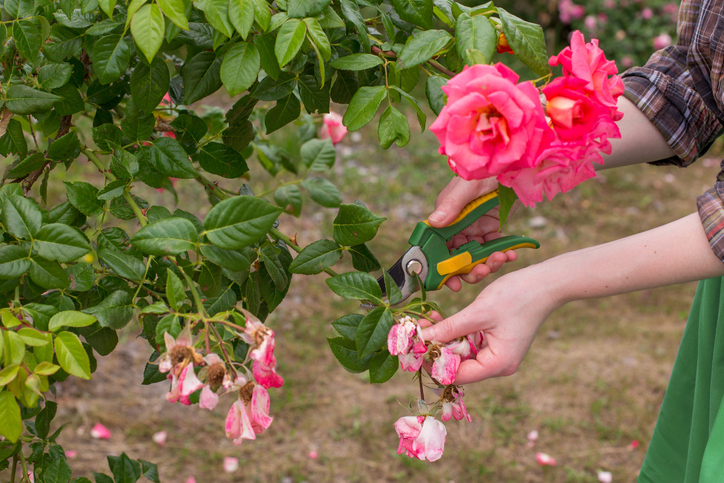If you saw me a few weeks ago, you might have noticed my hands being all cut up, the reason being that I was pruning my rose bushes. As I cut my bushes back there is a part of me that wants to protest, “STOP! What are you doing?! You want the bushes to grow and get bigger!”
So why am I doing it? Why am I choosing to cut down these roses when it seems to make no sense, and it would certainly be easier to let them go and be wild?
If you have roses, or another type of shrub that needs pruning, you already know the answer. You prune for several reasons: to cut out the diseased bits, to stimulate new growth, to encourage the bush to flower more, and to help shape the bush.
So while it isn’t a pleasant activity for my hands, and I am not sure the rose bush would say that it feels good, in the end, it is for the rose bush that I am pruning. While I am snipping away and dodging the thorns, I keep my end game in mind. I picture the delight of watching them grow, of seeing the flowers develop, and enjoying the blooms once they are there.
You might be asking yourself, “Why am I reading about this on a counseling page,” or maybe you have already drawn your own conclusions. As I was pruning those bushes, I realized that it is similar to counseling.
My goal, as the therapist, is to ask, “How do I stimulate new growth?” I have to ask myself, “Where are the diseased areas that we need to cut away? Where is the dysfunction?” That dysfunction can look different for each person. It might look like anxiety, or depression. It might look like problems in your marriage or relationships.
There is a verse in the Bible that has become my prayer as I do therapy. It is God speaking to the prophet Jeremiah, “See, today I appoint you over nations and kingdoms to uproot and tear down, to destroy and overthrow, to build and to plant.” (Jeremiah 1:10 NIV) In therapy, my prayer is that God gives me the wisdom to know when to tear down, and when to build up, because healthy growth needs both, the tearing down, and the building up.
Now you might be thinking, “This is all well and good, but what does this have to do with me?” This is helpful for you for two reasons: One, it helps you to understand what to expect from therapy. Two — and here is your action part — you can work on your knowledge of yourself, your motivations, desires, actions. When you work on your self-awareness, you will naturally begin doing some of your own pruning, therefore not needing a gardener as much to do it for you. Happy pruning!

